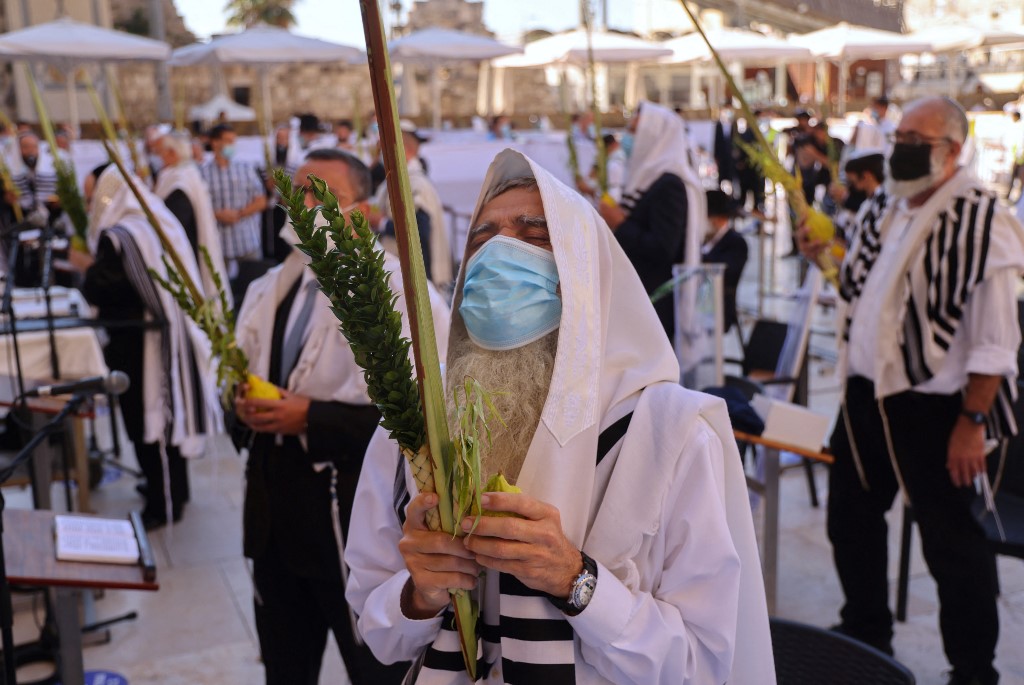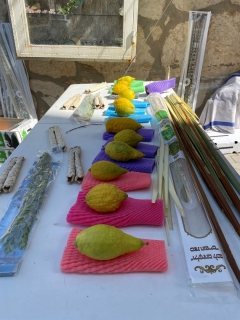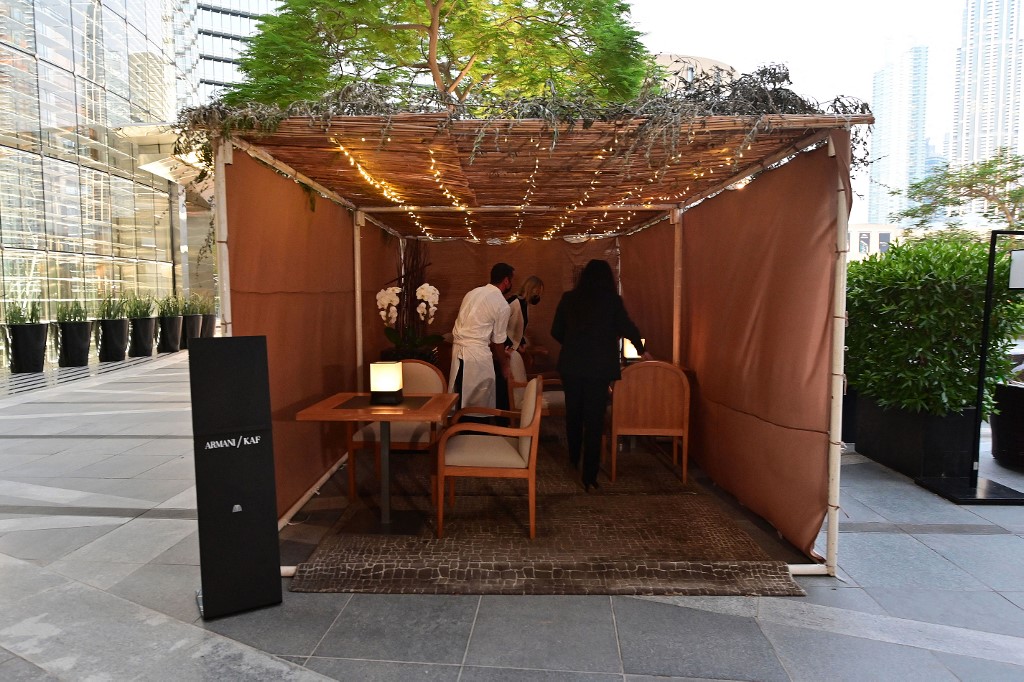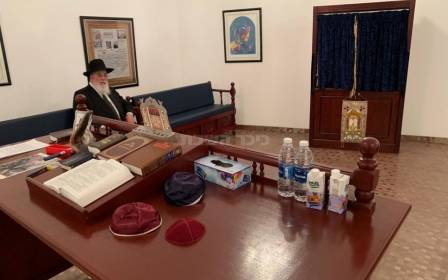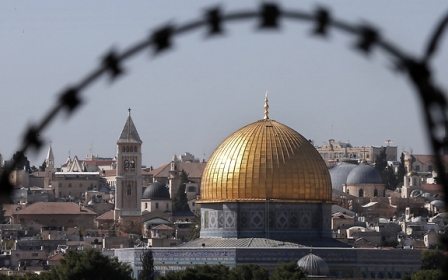What is Sukkot? The Jewish celebration explained
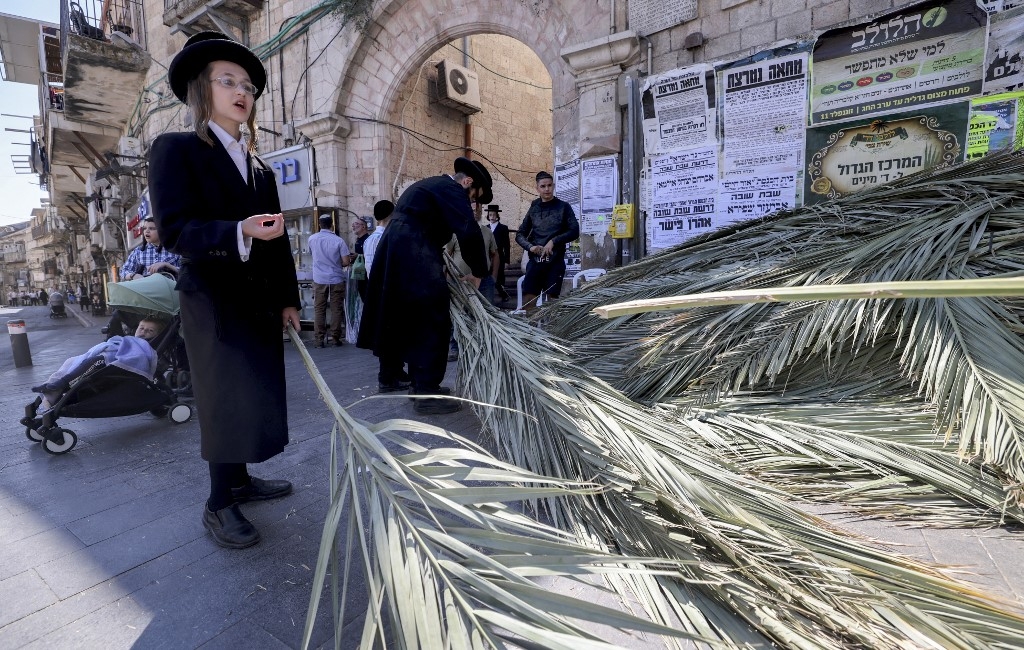
This week heralds the start of the Sukkot celebration, one of the most important religious events in the Jewish and Samaritan religions.
The week-long holiday is an agricultural tradition, marking the harvest, and also a religious occasion celebrating the deliverance of the Jewish people after the exodus from Egypt.
It is usually observed with family gatherings, religious rituals and communal meals. The traditions are packed full of symbolism for observant Jews.
Here Middle East Eye takes a look at the celebration and answers some key questions.
What is Sukkot and when is it marked?
New MEE newsletter: Jerusalem Dispatch
Sign up to get the latest insights and analysis on Israel-Palestine, alongside Turkey Unpacked and other MEE newsletters
According to biblical tradition, Sukkot commemorates the years the Jewish people, led by Moses, spent wandering the desert on their way to the promised land after their exodus from Egypt.
Sometimes referred to as the "Feast of Tabernacles" or the "Feast of Booths", the occasion is one of the three major Jewish religious festivals, alongside Passover and Shavuot.
The celebration typically falls in September or October in the Gregorian calendar, as it starts five days after Yom Kippur. The date of Sukkot falls on the 15th day of Tishrei, the seventh month of the Jewish calendar.
This year, Sukkot will be observed from sunset on 9 October, and end on the night of 16 October.
What does Sukkot mean and what are its origins?
Sukkot, which means hut or booth, refers to the shelters that Jews sought protection in after they had left Egypt with Moses during the exodus.
According to Jewish tradition, the Jewish people spent 40 years in the desert, and built temporary homes which helped protect them from potential enemies, wild animals and the desert climate. However, observant Jews believe that ultimate gratitude for their salvation lies with God.
According to anthropologists, the origins of Sukkot stem from an ancient autumnal festival, which gave thanks to God for the harvest.
How is the occasion marked? What is the religious significance?
Jewish families will typically mark the occasion by building a structure which resembles a hut or a booth, where they will stay during the seven-day period.
According to Jewish tradition, the hut structure should be make-shift or temporary, and allow its inhabitants to see the sky. The roof of the structure is mostly made out of branches and leaves.
There are four specific plants which are used, including citron fruit, a palm branch, a myrtle branch and a willow branch. The combination of plants, known as the four species, are an important part of Sukkot as it is mentioned in the Torah.
During the holiday, Jews will tie the branches together and wave them in six directions. The waving of the branches is done to bless the booth, in which Sukkot is celebrated.
Today, many Jews will build the booth structure, also known as the sukkah, in their garden or balcony. Some will even decide to sleep in it overnight.
The structure allows the observant to get a more authentic insight of what living in an exposed shelter would have been like.
It also serves as a reminder that for Jews, God is their only true source of protection, particularly during turbulent times.
The Sukkah must have at least three walls, while the fourth can be a door or entry way. While some observants build theirs from scratch, others will buy ready-made foldable structures they can re-use year after year.
During the first two days of Sukkot, Jews will abstain from doing work, treating the occasion as a Sabbath, or a sacred day.
While in the Sukkah, some families will choose to recount stories from the Bible, and take part in communal prayers, while others attend a synagogue for services.
What do people eat during Sukkot?
Meals eaten during Sukkot vary from family to family. Some may choose to eat foods that are in season, opting to go for fruits and vegetables that symbolise the harvest, while others eat traditional Jewish dishes.
Stuffed vegetables are a popular choice, with variations usually including cabbage, courgette, aubergine and tomatoes.
One popular food which is quintessentially eaten during the festive period is challah, a braided bread that is central to most Jewish celebrations. The bread is made from eggs, water, flour, yeast and salt. Some will choose to add a twist to the traditional offering by dipping it in honey for extra sweetness.
Typically, families will create a spread of salads, chicken, meats and fish for the family to enjoy during the Sukkah. Hearty and wholesome meals, such as casseroles and soups, are also commonly eaten during the holiday.
Favourite dishes during the holiday also include brisket and matzo ball soup, which is a chicken soup filled with a kind of dumpling, shredded chicken and vegetables.
Is Sukkot a public holiday?
The first and last day of Sukkot is a public holiday in Israel, during which many shops and businesses may close early, or all together. The public holiday is recognised by the Knesset, Israel’s parliament.
In other countries, such as the US and UK, Sukkot is not a public holiday, however in areas that host large Jewish communities, many business owners may choose to alter their opening hours to mark the holiday.
Some families may choose for their children to take days off from school in order to celebrate Sukkot with their families, however there are no official holidays for it in the UK.
This article is available in French on Middle East Eye French edition.
Middle East Eye delivers independent and unrivalled coverage and analysis of the Middle East, North Africa and beyond. To learn more about republishing this content and the associated fees, please fill out this form. More about MEE can be found here.


